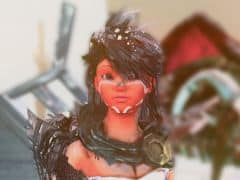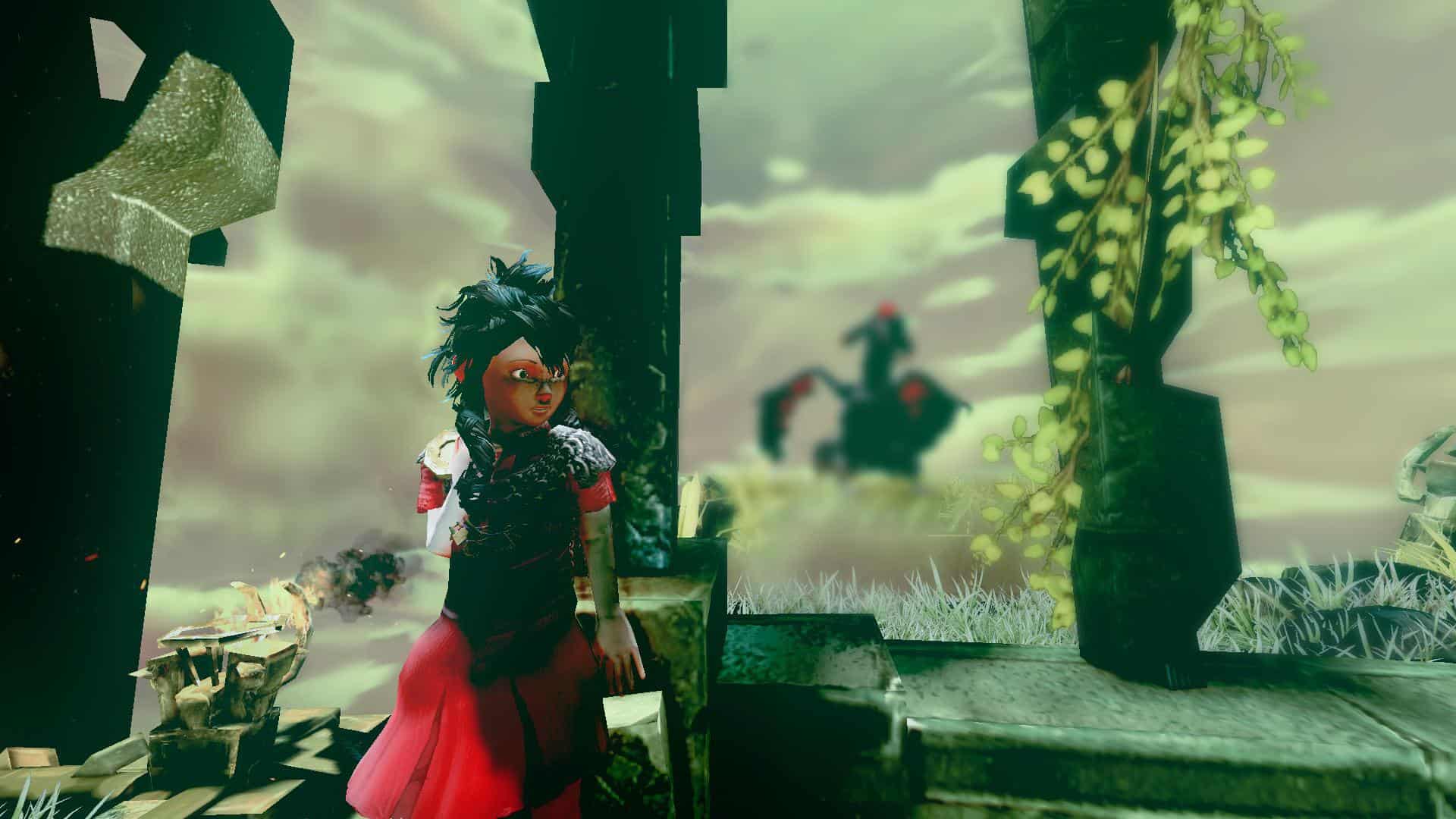You can trust VideoGamer. Our team of gaming experts spend hours testing and reviewing the latest games, to ensure you're reading the most comprehensive guide possible. Rest assured, all imagery and advice is unique and original. Check out how we test and review games here
Imagine Ico. Go on. What springs to mind? Yorda? Hand-holding? Rubbish combat? Probably all three. But floating around in there, no doubt, will be that image of the circular stairwell built into a grand, decaying tower. You know the one.
Toren, essentially, is an expanded reimagining of that famous scene. You play as Moonchild, a young girl trapped in a tower, fated to ascend it. Doing so will see players encounter mild puzzles and basic platforming, while also battling – and eventually slaying – the dragon which has prevented Moonchild’s escape. As mentioned, Team Ico’s work is the clear inspiration, but the whole thing has a PS2-era vibe about it, in both the best and worst possible ways. It’s easy to focus on the negatives, especially in the early going. The camera often loses track of Moonchild in the frame. It’s buggy, sometimes disregarding button inputs or getting players caught on invisible collision. Mechanically, it does no one thing well. Platforming is loose, floaty, and imprecise, not helped by the camera. Combat is both sparse and weak, blows lacking impact and foes lacking, well, anything approaching good design. They just wander around, trying to grab you, and are easily avoided. At points you’re accosted by some weird astral piranhas. Yeah.
But it also has a style, a mood, juxtaposing the elemental with the man-made, dreams played against mundanity, a consistent feel that recalls the better adventure titles of the era. Death and rebirth are key themes, and its mechanics reflect that. Climbing the tower itself isn’t particularly taxing, often asking nothing more than jumping onto and off of tree branches, rotating platforms, etc , but dying is intrinsic to the experience. It’s not a roguelike, nor is it akin to Dark Souls, where each death is a learning experience, or at least could be treated as such. Instead, falling off a platform, being turned to stone by the dragon, or freezing to death reveals a little more of the story, told cryptically by an elder resident of the tower before you wake up (not respawn) at the last checkpoint.
When not directly climbing the tower the areas you encounter on the various floors, as well as optional dream sequences, inject mechanical variety into the experience. Some ask players to trace over shapes with sand, or cling to statues to prevent being blown off the stage by ill winds. As expected, the dreamscapes have a more surreal edge, such as invisible platforms in the clouds which are only revealed when holding down Y to ‘flip’ the level. They break things up well enough, and while they’re skippable it’s advisable you don’t, as a lot of story is communicated via these stages.
None of these levels outstay their welcome, and there’s enough intrigue in the climb itself – and Moonchild’s growing powers – to keep you at it. Her character arc is represented with few words, instead favouring her interactions with the dragon, and the changing of the seasons, climaxing in winter. An infant in the beginning, she soon recovers a sword, ageing into what appears to be her teenage years. It’s easy to read some of the game’s elements as allegories for puberty, and it’s refreshing to see a character arc that’s not just ‘white dude kills everyone’. That said, Moonchild’s clothing – which tears as she ages, revealing more of her cleavage or her back – isn’t particularly clever, and comes across as cheap and exploitative.
Despite its many, many problems, I found myself pushing on in attempt to see the resolution of Moonchild’s story. (Part of this, it must be said, is probably down to its relatively short length of around two hours.) Toren’s cryptic storytelling and focus on signs, superstitions, ancient beliefs and systems is often close to being too self-indulgent, but its aforementioned style is enough to see it over the line. Should you persist to the end game, you’ll find it’s perhaps a perfect microcosm of the game itself: built on dissatisfying mechanics, repetitive action, and overall bugginess, mitigated somewhat by the ensuing imagery and sense of mood and atmosphere.
Version Tested: PC.

